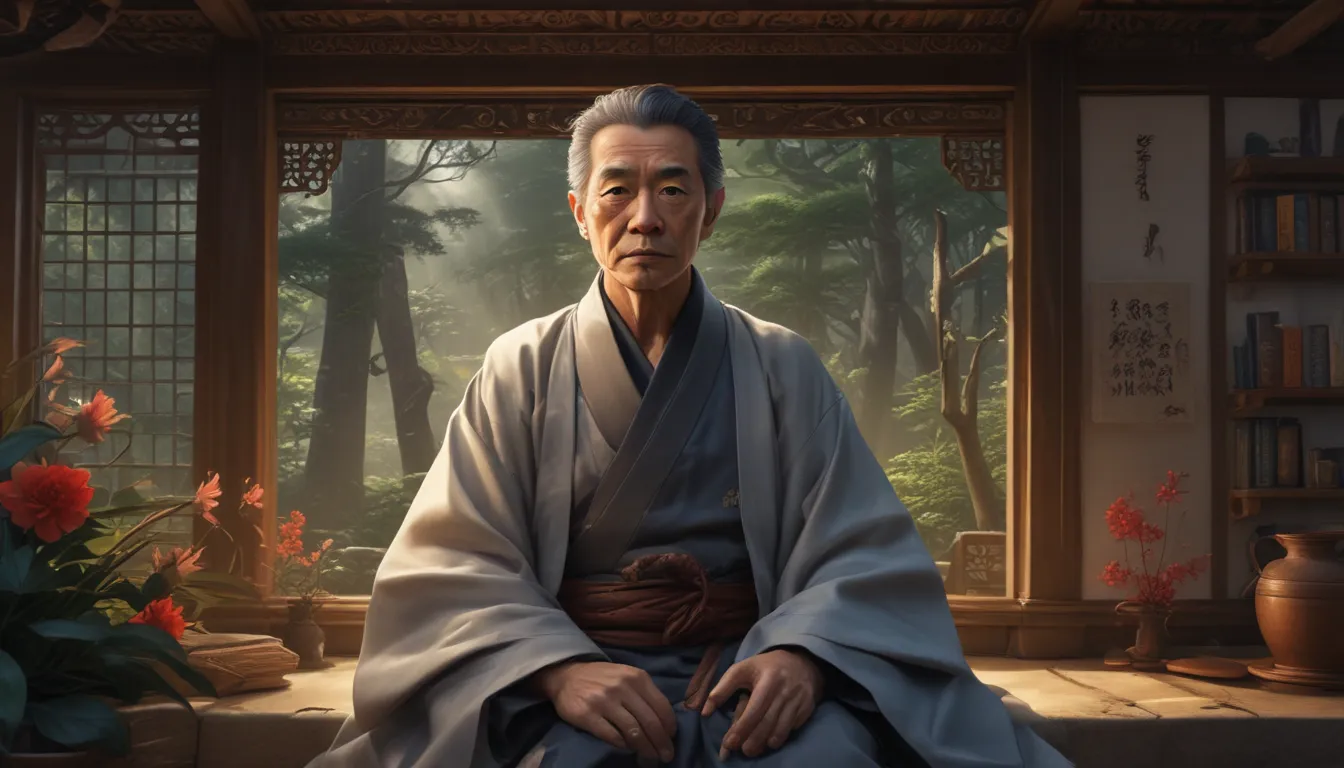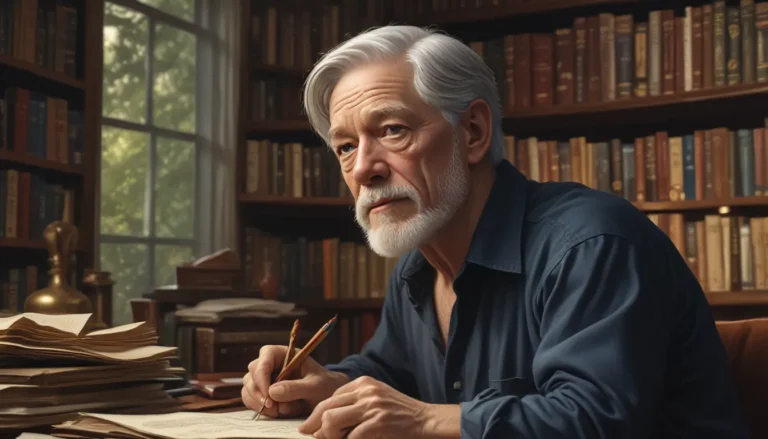The images in our articles may not match the content exactly. They are used to grab your attention, not to show the exact details in the text. The images complement the text but do not replace it.
When we reflect on the influential figures in politics, names like Churchill, Gandhi, and Mandela often spring to mind. However, there are lesser-known individuals who have made significant impacts on the world stage. One such person is Eisaku Sato, a Japanese politician who served as the Prime Minister of Japan from 1964 to 1972. While his name may not be as prominent as some of his counterparts, Sato’s contributions are far from insignificant. In this article, we’ll delve into 15 surprising facts about Eisaku Sato that illuminate his remarkable life and career. From his advocacy for disarmament to his historical Nobel Peace Prize win, Sato’s story is one that deserves recognition and celebration. So, let’s embark on a journey to explore the extraordinary world of Eisaku Sato.
The Longest-Serving Prime Minister in Japan’s History
Eisaku Sato holds the record for being Japan’s longest-serving prime minister, with a remarkable tenure of 2,798 days from 1964 to 1972. His leadership spanned nearly a decade, leaving an enduring impact on the political landscape of Japan.
Nobel Peace Prize Laureate
In 1974, Eisaku Sato was awarded the Nobel Peace Prize for his efforts in promoting disarmament and fostering better relations between Japan and its neighboring countries. This prestigious international recognition highlighted Sato’s dedication to peace and diplomacy on a global scale.
Instrumental in the Return of Okinawa
Sato played a pivotal role in the negotiations for the return of Okinawa to Japan, resolving the Okinawa reversion issue with the United States peacefully. His leadership ensured the island’s return to Japanese sovereignty in 1972, marking a significant diplomatic achievement.
Champion of Economic Transformation
Under Sato’s governance, Japan underwent a significant economic transformation, including the implementation of the Yen revaluation policy to stabilize the country’s currency exchange rates. His economic initiatives aimed to stimulate growth and prosperity, shaping Japan’s financial landscape.
Advocate for Peaceful Diplomacy
Throughout his tenure as prime minister, Eisaku Sato emphasized the importance of peaceful resolutions to conflicts, earning respect both domestically and internationally for his commitment to diplomatic solutions.
Proponent of Japan’s Global Engagement
Recognizing the significance of Japan’s participation on the global stage, Sato actively promoted the country’s involvement in international organizations, with a particular emphasis on enhancing Japan’s role within the United Nations.
Influential Figure in Post-War Japan
As a prominent member of the Liberal Democratic Party, Sato played a vital role in shaping Japan’s political and economic policies during a period of rapid growth and development, leaving a lasting imprint on the nation’s trajectory.
A Diplomatic Ambassador
Before assuming office as prime minister, Eisaku Sato held the prestigious position of Japanese Ambassador to the United Kingdom from 1962 to 1964, developing valuable diplomatic experience that would serve him well in his subsequent leadership role.
Legacy of Calm and Composed Leadership
Even amidst crises, Sato’s demeanor remained steadfast, earning him a reputation as a level-headed and composed statesman who navigated challenges with poise and grace.
Commitment to Nuclear Non-Proliferation
Eisaku Sato was a staunch advocate for nuclear disarmament and non-proliferation, highlighting the importance of international cooperation in creating a safer and more secure world for all.
Pioneering Education Reforms
Sato’s government introduced the Basic Education Law, a landmark legislation aimed at providing equal educational opportunities to all Japanese citizens, focusing on the importance of quality education for future generations.
Trailblazer as a Nobel Peace Prize Recipient
Eisaku Sato’s Nobel Peace Prize win in 1974 marked a historic milestone as the first Asian recipient of this esteemed honor, bringing pride not only to Japan but to the entire Asian continent.
Visionary Economic Initiatives
Sato’s administration launched the “Income Doubling Plan,” with the ambitious goal of doubling Japan’s per capita income within a decade, implementing measures to stimulate economic growth and advance prosperity for the nation.
Advocate for Women’s Empowerment
Eisaku Sato was a strong supporter of women’s empowerment and gender equality, advocating for increased opportunities for women in Japan’s workforce and society, championing equality and inclusivity.
Enduring Legacy of Integrity and Influence
Recognized for his integrity, vision, and unwavering dedication to public service, Eisaku Sato’s leadership continues to resonate in Japan’s political landscape and the global community, leaving an indelible mark on history.
In conclusion, Eisaku Sato’s legacy as a Nobel Peace Prize laureate and influential leader in post-war Japan is truly remarkable. His commitment to peace, diplomacy, and progressive policies sets him apart as a historical figure of immense significance. From his enduring impact on Japan’s political landscape to his pivotal role in international relations, Sato’s contributions continue to inspire generations to strive for positive change through visionary leadership and practical policies.
FAQs
Q: What were some of Eisaku Sato’s notable achievements as Prime Minister?
A: Eisaku Sato is best known for his efforts in nuclear disarmament, for which he was awarded the Nobel Peace Prize in 1974. He also played a key role in improving diplomatic relations with other countries and prioritized economic growth and education reform during his tenure.
Q: How long did Eisaku Sato serve as Prime Minister?
A: Eisaku Sato served as the Prime Minister of Japan for a record-breaking duration of eight years, from 1964 to 1972.
Q: Was Eisaku Sato involved in any significant peace agreements?
A: Yes, Eisaku Sato was instrumental in brokering peace treaties with several countries, including the Soviet Union and South Korea. These agreements helped to improve diplomatic relations and promote stability in the region.
Q: What was Eisaku Sato’s stance on nuclear weapons?
A: Eisaku Sato was a strong advocate for nuclear disarmament. He emphasized the importance of peaceful coexistence and dedicated efforts towards reducing tensions and promoting global security.
Q: How did Eisaku Sato contribute to education reform?
A: Sato recognized the critical role of education in Japan’s future success. He implemented significant reforms aimed at improving access to education, enhancing curriculum standards, and fostering vocational training opportunities.
As we unravel the remarkable journey of Eisaku Sato, his legacy serves as a testament to the power of visionary leadership and unwavering dedication to peace and progress. Let us continue to draw inspiration from his contributions as we navigate the complexities of our world today.






